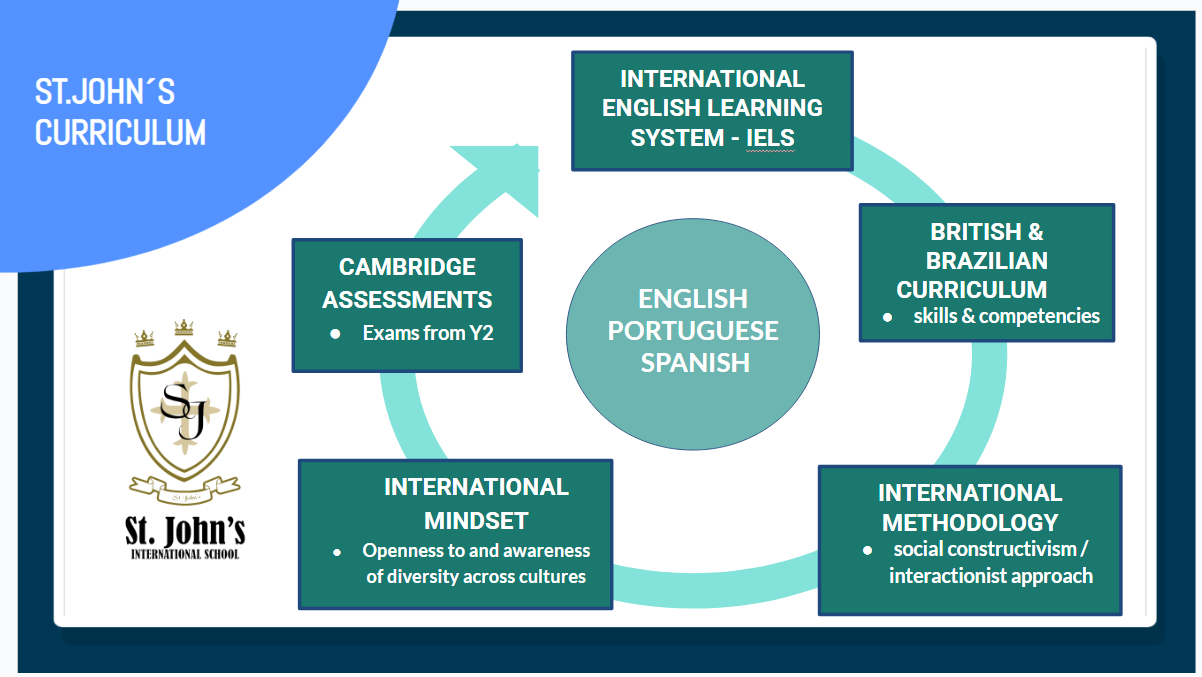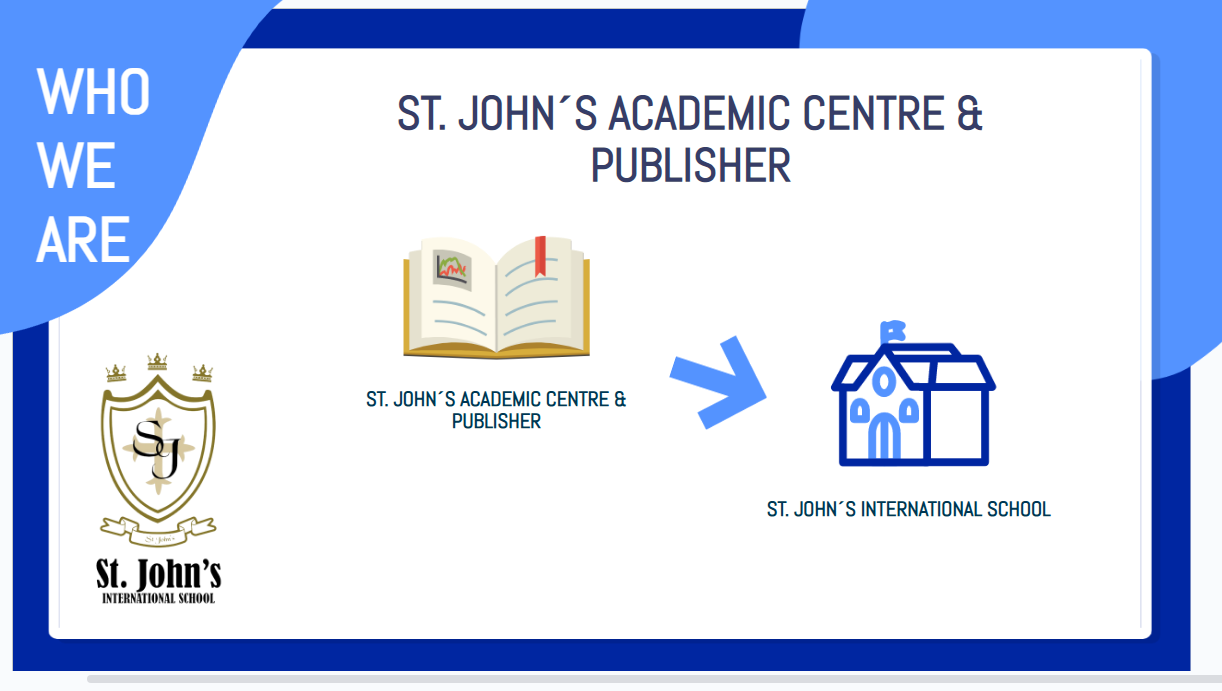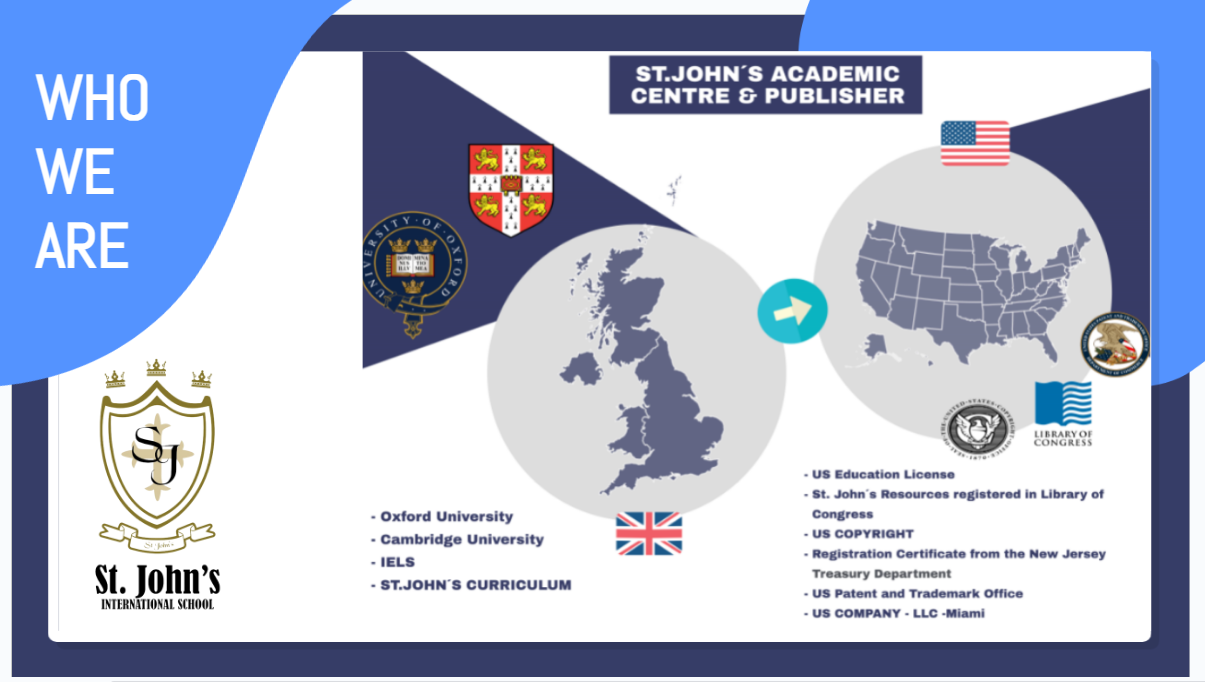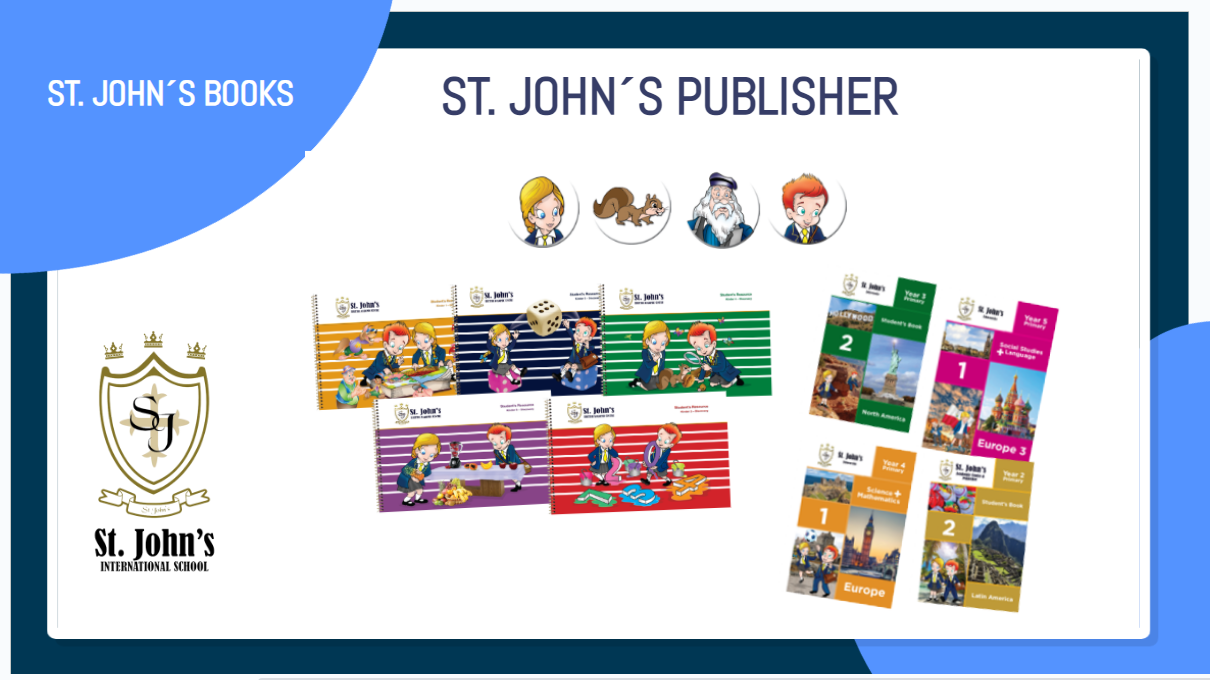Integrated Curriculum
The integration between national common core and the british international curriculum

As a world school, we make every effort to help our students develop a global mindset. At St. John's, our students are educated in three languages — English, Portuguese, and Spanish. We ensure that the Brazilian Common Core requirements are seamlessly integrated into the British curriculum, incorporating both the International Mindset and global perspectives. Our educational system, through the St. John's IELS (International English Learning System), promotes the investigation of global traditions, values, and cultures, alongside the exploration of worldwide issues and solutions. This includes a deep dive into the history of colonizations, geographical contexts, economic systems, and the diverse curiosities that shape different societies. By examining these areas, students develop a nuanced understanding of how the past continues to influence the present and future.
The curriculum's transdisciplinary approach ensures that subjects are not isolated but interwoven, using one or more disciplines to deepen students’ understanding and develop their critical thinking. Rooted in Inquiry-Based Learning, our students actively engage in exploring questions and solving real-world problems. Additionally, the Cambridge Assessments International Mindset encourages our students to think globally, while Social Constructivism emphasizes collaboration and the sharing of diverse ideas, fostering a dynamic and inclusive learning environment.
By adopting these principles, we equip our students with the intellectual skills and ethical responsibility needed to address the challenges of the world and contribute positively to society.

St. John's Academic Centre & Publisher
The St. John's Academic Centre is both an academic hub and a publishing entity responsible for the development of the St. John's IELS (International English Learning System). This British-based educational system, developed in the United Kingdom, forms the backbone of the curriculum at St. John's International School. Through the IELS system, the Centre ensures that students receive a world-class education with a focus on English language mastery and global competencies. The system's innovative approach integrates best practices from the UK education system while fostering a dynamic, student-centered learning environment at St. John's International School.

St. John's International School
St. John's International School is an American-based company, fully accredited and licensed to operate in the educational sector. The school holds all necessary educational licenses and is registered under both American and British copyright laws. Additionally, the St. John's brand is a registered American Trademark, ensuring the integrity and recognition of its educational programs and intellectual property. With a global reach and a commitment to excellence, St. John's provides a unique educational experience, combining American educational standards with international best practices.

At St. John's, our IELS (International English Learning System) begins with the foundational principle of nurturing a child's identity and understanding of the world. For our youngest learners, starting in Little John, the curriculum begins with the most immediate context to the child: Who am I? Students explore their families, where they live, their traditions, and their communities. They focus on learning about their neighborhood, city, and country, developing a strong sense of identity and belonging.
As students grow, the curriculum gradually expands, following a spiral approach. The first country and continent to be studied is Brazil, the students’ home country, where they delve into its history, culture, geography, and society. This foundational understanding of their own country sets the stage for their global journey. The exploration continues as students expand their knowledge to Latin America, and then to Central America, North America, Europe, Eastern and Western Europe, Asia, and Africa. Each region is revisited at deeper and more complex levels, allowing students to draw connections and uncover patterns that influence global systems.
This progression helps students build an International Mindset as they study the world through multiple perspectives, integrating the Global Perspectives framework. By engaging with content and curricula that are directly studied in the countries they are exploring, students develop an authentic and comprehensive understanding of various cultures, systems, and histories.
Throughout this journey, the mother tongue of instruction is English, ensuring that students not only learn about different cultures but also gain proficiency in the English language, which is essential for global communication and participation in an interconnected world. Through this methodology, we prepare our students to be citizens of the world, equipped with the skills, knowledge, and empathy needed to navigate and contribute to the global challenges of tomorrow.